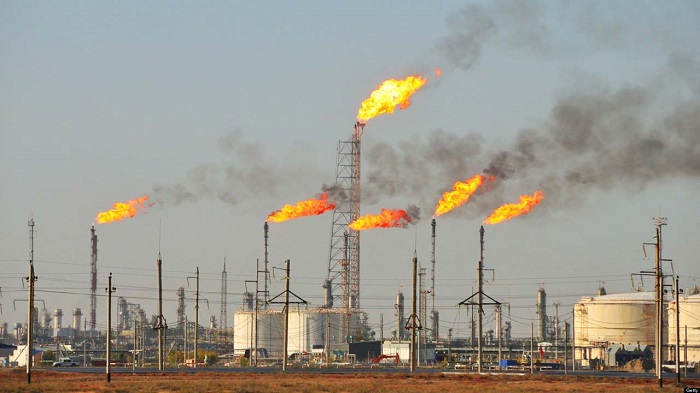The House of Representatives has directed the relevant house committees to study the impact of gas flaring in the Niger Delta region and ensure compliance with gas flaring regulations.

This followed a unanimous adoption of a motion moved by Rep. Ben Igbakpa (PDP-Delta) during the plenary presided over by Speaker of the house, Mr Femi Gbajabiamila, on Wednesday, November 13, 2019.
The committees are Petroleum (Upstream, Downstream and Gas), Climate Change and Environment.
The legislature also called on multinational oil companies operating in the Niger Delta Region to stop the continuous flaring of associated gas and rather install equipment for capturing the associated gas as it obtains elsewhere.
Presenting the motion, Igbakpa said that flaring of natural gas around the world contributed to the scourge of climate change, with more than 350 million tons of emissions each year.
The representative recalled that Nigeria was signatory to the Global Gas Flaring Reduction Partnership, setting itself for a 2020 deadline to end gas flaring.
He, however, expressed concern that the routine flaring of associated gas continued unabated in the Niger Delta area, posing severe environmental and health hazards to the people, with an estimated two million people living within four kilometres of gas flares.
“Gas flaring amounts to burning money and wasting of resources as the methane or the combusted type which is flared can be monetised as a revenue earner for Nigeria, as is now obtainable elsewhere.
“Small Gas to Liquid (GTL) units are now an attractive option globally for monetising associated petroleum gas which would otherwise have been flared, and the World Bank Report estimated that about 50 billion dollars’ worth of gas is being wasted to flaring annually.
“With the use of modern technology, associated gas can be used to generate electricity,” he said.
The lawmakers emphasised that nothing visible had been achieved since the approval of the legal framework, Flare Gas (Prevention of Waste and Pollution) Regulations, 2018, by President Muhammadu Buhari.
The house added that the framework was aimed at reducing Green House Gas through gas flaring.
The green chamber expressed concern that nothing had been achieved to end gas flaring in the country in spite of the framework which also provides the legal basis for the implementation of the Nigeria Gas Flare Commercialisation Programme.
The programme prohibits flare or vent of gas and imposes sanctions on defaulters.
In light of these, the representatives urged the Ministry of Petroleum Resources, Nigerian National Petroleum Corporation and regulatory bodies responsible for ending gas flaring in Nigeria to ensure strict compliance with the “Flare Gas (Prevention of Waste and Pollution) Regulations 2018″.
It also urged the regulatory bodies to ensure implementation of the Nigeria Gas Flare Commercialisation Programme.
By Temitope Ponle
